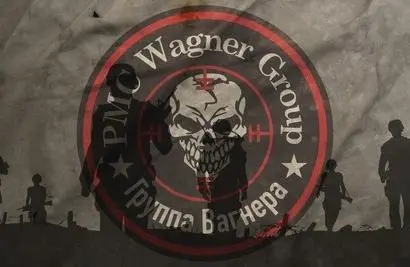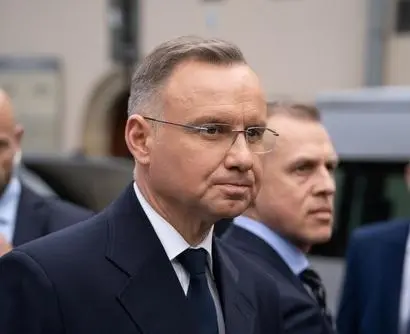Abstract: For many years, Russia has targeted Western audiences with propaganda and disinformation. NATO has adapted to this development by adjusting its focus and respective strategic communications (StratCom) documents. In countering Russia’s disinformation, NATO’s strategic communications intend to match words with deeds to advance NATO’s aims and preserve the cohesion of the alliance. However, there is room for improvement in terms of strategic communications capabilities. This is also true for Germany, which has long been a target for Russian information activities. In light of the “Zeitenwende” (watershed), strategic communications should be an integral component of strategy development and considered a whole-of-society approach.
Problem statement: How to counter information used as a weapon directed against society as a whole?
So what?: Strategic communications should be embedded into the Federal Chancellery. Strategic communications must be coordinated and integrated both within and between institutions. Civil actors must be included, and efforts must be made to build the population’s resilience to propaganda and disinformation.

Source: shutterstock.com/photocosmos1
Democracy Under Attack
Due to Russia’s disregard for the norms of civil society, NATO finds itself in a hybrid conflict in which information is a weapon, and strategic communications (StratCom) can form a line of defence. Propaganda and disinformation are part of Russian security policy[1] and directly target Western audiences. Allied Nations must counter this form of influence actively instead of passively. Democratic governments are duty-bound to shield public reason from hostile attempts to exert a distorting influence on their free societies.[2]
Protecting citizens’ freedom to form and express their opinions freely are primary tasks of liberal democracy. This is especially true when attempts are made from outside to manipulate opinions to weaken that democracy. Autocratic actors often exploit the liberal character of Western countries to influence democratic processes and undermine state institutions. Western governments lack the capacity for StratCom as a tool to counter this threat effectively. A paradigmatic example of this capability gap is Germany.
Evolution Of The Strategic Environment Towards Constant Competition
Authoritarian counter-models increasingly challenge the rule-based international order. States compete over ideologies, ways of life and value systems. The spectrum of conflict ranges from state-controlled influence activities to conventional warfare. With Russia’s criminal attack on Ukraine, force has once again been employed as a means of foreign policy. However, a significant hallmark of political-military conflict in the 21st century is the use of hybrid warfare either as part of conventional warfare or as means to destabilise an opponent while staying below the threshold of a kinetic confrontation. Yet NATO does not rule out that hybrid operations against Allies could reach the level of an armed attack which could lead to the invocation of Article 5.[3] Conceptualisations try to create an adequate terminology for our contemporary, multilayered strategic environment and its challenges, like a hybrid-, cognitive-, narrative-, memetic- or information warfare.[4], [5], [6], [7],[8] The West — and NATO in particular — is struggling to constantly adapt its policies, organisation, and doctrine to these emerged concepts of warfare. A recently passed milestone on this pathway is ratifying the new NATO capstone doctrine Allied Joint Doctrine (AJP-01).[9]
With Russia’s criminal attack on Ukraine, force has once again been employed as a means of foreign policy.
In this document, NATO adopts two especially notable insights. It follows the NATO 2022 Strategic Concept by characterising our environment as “strategic competition” between democratic and authoritarian rule.[10] The notion of “strategic competition” replaces the traditional peace/war distinction with the perspective of a continuum of competition generally below the threshold of armed conflict. Inside this competition continuum, states use their instruments of power (diplomatic, informational, military, and economic) to follow their national interests.[11]
The second insight shifts NATO’s focus from an anticipated potential enemy to actors and audiences in general. Influencing or changing the behaviour of audiences is the new core tenet of NATO military doctrine. This behaviour-centric approach recognises that people’s attitudes and behaviour are more central to attaining NATO goals than merely kinetic forces. This becomes clear in the light of NATO’s centre of gravity—the cohesion of its allied nations—that rests on the common solidarity of their respective populations. Undermining this cohesion through hostile information influence campaigns can erode this unity.[12]
StratCom is the central capability in NATO concerned with audiences’ perceptions, attitudes, and behaviour. NATO got its first military StratCom doctrine in March 2023 (AJP-10)[13]. It extends the military concept of the information environment (AJP-10.1)[14] as a contested sphere of operation to the democratic public sphere. This has two consequences: (1) StratCom understands the democratic way of life itself is targeted by foreign powers to weaken it. (2) StratCom seeks to influence and shape the information environment. Since it is not a military capability in the kinetic sense, the classical concepts of military thought and action only partially apply to StratCom.
Most NATO Allies have ratified the new StratCom doctrine and announced the will to implement it in their national armed forces. This ratification and implementation of the military instrument of power is only the first step since StratCom is not primarily a military capability. It requires a comprehensive governance approach with direction and guidance at the political level.
To illuminate the need for a national-level StratCom mindset, we picked Germany as an example to show how the current lack of StratCom capability is weakening the state and why the recent experiences with the war in Ukraine can catalyse a response to fix this.
New Threat Perceptions As A Result Of The War In Ukraine
The proclaimed German “Zeitenwende” (watershed) in security policy, triggered by the latest Russian war of aggression against Ukraine, has reached the German population. In a 2022 survey conducted by the Bundeswehr’s Centre for Military History and Social Sciences, most respondents perceived Russia as a threat to Germany’s security for the first time.[15] The 2023 Security Report published by the Allensbach polling institute confirms this trend.[16] However, the change in sentiment is not only the result of the war in Ukraine but also reflects the growing concern about Russian propaganda and disinformation[17] among the German population.
Indeed, Germany has long been the target of Kremlin disinformation campaigns[18] and its attempts to manipulate the media space.[19] Whether the public debate during the Corona pandemic[20] or currently the coverage of the war in Ukraine,[21] Russia is trying to interfere in national debates and influence public opinion in its favour.
Germany has long been the target of Kremlin disinformation campaigns and its attempts to manipulate the media space.
Because of the nature of media discourse, various messages compete for interpretive authority; in the process, evidence-based factual claims are not always disseminated. Especially in social media, reports and claims are often difficult to verify.
However, things become critical and are security-relevant when the information is weaponised to distort perceptions and deliberately manipulate judgment. In an information war[22] such as the one being waged by Russia, Germany must specifically open up the communications space to become capable of acting in the information environment in the context of a “Zeitenwende“.
Propaganda And Disinformation As Russian Hybrid Influence
Propaganda and disinformation are components of Russian security policy.[23] They are used as part of hybrid influence, especially in the intensifying political confrontation with Western democracies.[24] For Moscow, hybrid influence is an ongoing task, regardless of whether an armed conflict exists.[25] Hybrid influence combines various military and non-military means below the threshold of armed conflict.
Russian propaganda and disinformation target society as a whole. It aims to undermine confidence in democracy and weaken state institutions. Actors, methods and goals are often concealed. Messages are disseminated in a variety of ways via a multitude of broadcast channels. A rapid, continuous and repetitive flow of information characterises them. This is intended to strengthen the recipient’s initial impression and, through similar reporting, establish a habituation effect that ultimately produces the desired formation of judgment. Through oversaturation with information, the use of familiar topics and seemingly verifying evidence, a lack of reference to reality becomes blurred. Correlations with, for example, pro-Russian demonstrations can be seen, often combined with cross-media reinforcement by influencers with a wide reach. The effect of this so-called “information laundering”[26] unfolds through a combination of lies and partial truths, which are supposed to convey credibility through de-contextualisation and supposedly verifying evidence.
It is vital to understand that far-left and far-right parties[27] and groups are not the only ones susceptible to Russian disinformation. Circles critical of the government, such as parts of the “Querdenker” movement (“lateral thinkers”),[28] have the potential to promote Russian narratives into society as well.
During the reporting on the poisoning of the Russian opposition politician Alexei Navalny in 2020, Moscow spread the message that he had been poisoned in Germany first and not in Russia.[29] This allegation originated from Russian sources and spread to Germany through a network of various media actors. Russia accused Germany of politicising the case and of an information campaign against Russia.[30] While the Kremlin claimed to be willing to cooperate, it criticised the alleged withholding of information by the German government, discredited actors involved, and claimed interpretive authority over the case through its own theories. Various false or misleading reports thus further underpinned the original content. This “information laundering” was intended to create confusion and integrate Kremlin narratives into public discourses outside Russia.
During the reporting on the poisoning of the Russian opposition politician Alexei Navalny in 2020, Moscow spread the message that he had been poisoned in Germany first and not in Russia.
Similarly, in the case of the 80th anniversary of the Soviet victory in the Battle of Stalingrad, Russian propaganda seeks to reinterpret the invasion of Ukraine as a patriotic war.[31] The Kremlin uses Germany’s planned deliveries of tanks to Ukraine as a pretext to draw this absurd historical comparison and once again accuses Germany of belligerent action against Russia.[32]
It is to be expected that Europe will continue to be the target of Russian propaganda and disinformation in the context of an ongoing and unbounded hybrid conflict. Germany must expect Russia’s activities to increase significantly. To counter this, the German government needs a strong StratCom capability.
Holistic Defense – StratCom As Key Capability
StratCom is based on the fundamental assumption that language and action are mutually dependent – words and deeds communicate equally.[33] An actor communicates and sends messages by performing or refraining from actions. At the same time, actions are themselves performed through specific forms of communication, so-called speech acts.[34] Thus, StratCom goes beyond a mere communication strategy.[35] While the latter strives to communicate post-factum plans and actions to mitigate adverse effects, StratCom starts directly with planning strategies and agendas.
StratCom is a holistic approach[36] to communication that assesses the classic state power tools of diplomacy, information, military, and economics regarding their communicative impact. Based on the values of the liberal democratic order and interests, words and deeds must be harmonised in all fields and branches to achieve politically defined goals.
StratCom in democracies differs from Russian-style state propaganda in one fundamental respect: While Russian propaganda deliberately disguises its goals, StratCom is intended to convey state intentions openly and authentically through narratives to explain, generate legitimacy, create meaning and develop a guideline to inform all state action.
Narratives are considered a central tool of StratCom. While often inflated as a buzzword, narratives have conceptual and practical value. They are morals drawn from stories or overall messages that find identical expressions in different mediums and contents.[37] Whenever one asks, “What is the moral of the story?”, the answer is a narrative. The Russian narrative for NATO reads thus: NATO is a U.S-controlled imperialistic organisation of morally deprived nations that is illegitimately expanding and threatening Russian security. Kremlin-affiliated communicators employ this narrative as part of their messaging towards NATO members. The narrative concept is ethically neutral and can be used for democratic and authoritarian purposes. For democratic governments, narratives enable interdepartmental cooperation and facilitate communication with their citizens. At the same time, one’s own narrative requires protection against hostile foreign narratives that undermine democratic policies and institutions. Therefore, effective StratCom is both narrative-guided as well as counter-narrative-oriented.
The Russian narrative for NATO reads: NATO is a U.S-controlled imperialistic organisation of morally deprived nations that is illegitimately expanding and threatening Russian security.
Pro-Kremlin media in Germany seeks to divide society and destabilise the democratic system with tailored narratives.[38] Chancellor Olaf Scholz’s February 27, 2022, speech[39] represents an example of a temporarily successful StratCom. The German government reacted to Russian aggression at the right time and established with the “Zeitenwende” a strategic narrative for the whole of German society. The need for deterrence and national and collective defence capabilities was emphasised across party lines and backed up with concrete measures such as a 100 billion euros special fund for the Bundeswehr.[40] At the same time, unity was shown in solidarity with Ukraine. The speech successfully transported a strategic message and was supported by large parts of the German parliament.[41] However, a poor follow on discourse with the population, insufficient intra-governmental coordination, and decision aversion later weakened this narrative in its clarity and consistency.[42] Especially the lack of ability to effectively materialise the 100 billion euro as part of defence budget spending gave rise to doubts about the credibility of a real “Zeitenwende”.[43]
Beyond Government – The Whole Of Society Approach
StratCom and related narrative-based activities by state actors must be coordinated and integrated as seamlessly as possible institutionally. This applies both within an institution (“vertically”) and between institutions (“horizontally”). At best, StratCom must be integral to a national security strategy.
What strategies look like without StratCom was made clear by the discussions on the meaning of the Afghanistan mission. A 2011 study comparing countries on successful government communication during the Afghanistan mission concluded that nations that explained their commitment with a clear, consistent, and realistic narrative from the beginning of a mission would gain significantly more support among their population.[44]
StratCom, however, is not exclusively a governmental task; it must take a “whole of society” approach. In democracies, the state and society should work together on this issue. Sweden is leading the way: The Psychological Defense Agency,[45] based at the Swedish Ministry of Justice, produces situation analyses and reports on disinformation and offers assistance and spaces for networking with societal actors. Conversely, the research activities and publicly accessible sources of independent investigative networks such as Bellingcat[46] or the British Centre for Information Resilience[47] are important resources for government action.
StratCom, however, is not exclusively a governmental task; it must take a “whole of society” approach.
In Germany, the federal government should embed StratCom in the Federal Chancellery, since, according to German law, the Chancellor holds the directing authority over the other ministries (“Richtlinienkompetenz”). From there, it can coordinate national ministries and integrate with planned joint NATO and European Union security policy activities.[48] Citizens must be enabled to recognise and classify attempts at manipulation by foreign powers (“empowerment”). This includes raising awareness of the problem and the need to strengthen media literacy to mitigate the effects of the spread of disinformation. School education that integrates this awareness into their curriculums and builds an information competency early on is a key to successful resilience against manipulation and deception. Ultimately, it is a matter of speed. Disinformation must no longer be countered only reactively. Active messaging and agenda setting must proactively remove any fertile ground for deception. As disinformation is integral to Russian foreign policy, consequently, not only Germany but all democratic governments have to consider StratCom in their own strategy developments.
LTC (GS) Dr Martin Böhm is a general staff officer at the Bundeswehr Office for Defence Planning. Coming from the Bundeswehr Operational Communications Centre, he previously worked as a Strategic Communications planner at the NATO Joint Forces Command in the Netherlands and as an Analyst in the Counter-DAESH Global Coalition Communication Cell at the British Foreign, Commonwealth & Development Office.
LTC Dr Sönke Niedringhaus is a staff officer at the NATO Strategic Communications Centre of Excellence in Latvia. In this capacity, he supports NATO and Allied training & education, courses & exercises as a lecturer and Subject Matter Expert for Strategic Communications. He previously worked for the Bundeswehr Operational Communications Centre and served as Information Operations Officer for UN MINUSMA in Mali.
The views contained in this article are the author’s alone and do not represent the views of the German Bundeswehr or NATO.
[1] “Russia Military Power,” Defence Intelligence Agency, last accessed April 27, 2023, https://www.dia.mil/Portals/110/Images/News/Military_Powers_Publications/Russia_Military_Power_Report_2017.pdf.
[2] “Public Reason,” Stanford Encyclopedia of Philosophy, last accessed April 27, 2023, https://plato.stanford.edu/entries/public-reason/.
[3] “NATO 2022 Strategic Concept,” NATO, last accessed April 27, 2023, para. 27, https://www.nato.int/nato_static_fl2014/assets/pdf/2022/6/pdf/290622-strategic-concept.pdf.
[4] Niklas Nilsson et al., “Security challenges in the grey zone: Hybrid threats and hybrid warfare,” in Hybrid Warfare: Security and Asymmetric Conflict in International Relations, ed. Mikael Weissmann, Niklas Nilsson, Björn Palmertz and Per Thunholm (London et al.: I.B. Tauris, 2021), 1-8; G. Alexander Crowther, “NATO and hybrid warfare: Seeking a concept to describe the challenge from Russia”, ibid., 21-35; European Parliament, Strategic communications as a key factor in countering hybrid threats (Brussels: European Parliament), 19-30, https://www.europarl.europa.eu/RegData/etudes/STUD/2021/656323/EPRS_STU(2021)656323_EN.pdf.
[5] “Cognitive Warfare: Strengthening and Defending the Mind,” NATO Allied Command Transformation, last accessed April 27, 2023, https://www.act.nato.int/articles/cognitive-warfare-strengthening-and-defending-mind.
[6] “Narrative Warfare How the Kremlin and Russian News Outlets Justified a War of Aggression against Ukraine,” Atlantic Council, last accessed April 27, 2023, https://www.atlanticcouncil.org/wp-content/uploads/2023/02/Narrative-Warfare-Final.pdf; “Narrative Warfare”, Medium, last accessed April 27, 2023, https://medium.com/@paulcobaugh/narrative-warfare-14ab7fa7ef89.
[7] Jeff Giesea, “It’s time to embrace memetic warfare,” Defence Strategic Communications 1, no. 1 (Winter 2016): 67-75, https://stratcomcoe.org/pdfjs/?file=//sky-20b67.kxcdn.com/publications/download/jeff_gisea.pdf?zoom=page-fit.
[8] Keir Giles, Handbook of Russian Information Warfare (Rome: NATO Defense College, 2016), 6-16, https://bdex.eb.mil.br/jspui/bitstream/123456789/4262/1/2016_Handbook,%20Russian%20Information%20Warfare.pdf; Bilyana Lilly, Russian Information Warfare: Assault on Democracies in the Cyber Wild West (Annapolis: Naval Institute Press, 2022): 13; Miroslav Mitrović, “Russian Strategic Communication – Endless Information Warfare,” Security Science Journal 3, no. 2 (2023): 28-54, http://www.securityscience.edu.rs/index.php/journal-security-science/article/view/79/54.
[9] “Allied Joint Publication-01: Allied Joint Doctrine Edition F Version 1,” NATO, last accessed April 27, 2023, https://assets.publishing.service.gov.uk/government/uploads/system/uploads/attachment_data/file/1148298/AJP_01_EdF_with_UK_elements.pdf.pdf.
[10] “NATO 2022 Strategic Concept,” NATO, last accessed April 27, 2023, https://www.nato.int/nato_static_fl2014/assets/pdf/2022/6/pdf/290622-strategic-concept.pdf.
[11] “The Instruments of National Power,” The Lightning Press, last accessed April 27, 2023, https://www.thelightningpress.com/the-instruments-of-national-power/; “Allied Joint Publication-01: Allied Joint Doctrine Edition F Version 1,” NATO, last accessed April 27, 2023, 15-17, https://assets.publishing.service.gov.uk/government/uploads/system/uploads/attachment_data/file/1148298/AJP_01_EdF_with_UK_elements.pdf.pdf.
[12] “Fact check: Russia’s disinformation campaign targets NATO,” DW, last accessed April 27, 2023, https://www.dw.com/en/fact-check-russias-disinformation-campaign-targets-nato/a-64675398.
[13] “Allied Joint Doctrine For Strategic Communications Edition A Version 1,” NATO, last accessed April 27, 2023, https://assets.publishing.service.gov.uk/government/uploads/system/uploads/attachment_data/file/1146501/20230328-AJP_10_EdA_V1_Strategic_Communications-O.pdf.
[14] “Allied Joint Doctrine For Information Operations Edition A Version 1,” NATO, last accessed April 27, 2023, https://assets.publishing.service.gov.uk/government/uploads/system/uploads/attachment_data/file/1133515/AJP-10.1-Info_Ops_web_accessible.pdf.
[15] Timo Graf, Zeitenwende im sicherheits- und verteidigungspolitischen Meinungsbild: Ergebnisse der ZMSBw-Bevölkerungsbefragung 2022 (Potsdam: Zentrum für Militärgeschichte und Sozialwissenschaften der Bundeswehr, 2022),https://zms.bundeswehr.de/resource/blob/5497510/ca157e2dc842f3f72f698e0397bbe005/download-bevbefr-2022-data.pdf.
[16]“Der 14. Sicherheitsreport: Eine Studie zur inneren und äußeren Sicherheit in Deutschland im Jahr 2023,“ Centrum für Strategie und Höhere Führung, last accessed April 27, 2023,https://www.sicherheitsreport.net/wp-content/uploads/Sicherheitsreport_2023_Charts.pdf.
[17] “Russische Medien in Deutschland: Unabhängiger Journalismus oder politisches Instrument?,“ Friedrich-Naumann-Stiftung, last accessed April 27, 2023,https://shop.freiheit.org/download/P2@754/145670/A4_RussischeMedien_D_Endfassung.pdf.
[18] “Disinformation as hybrid threat,“ Federal Ministry of the Interior and Community, last accessed April 27, 2023, https://www.bmi.bund.de/SharedDocs/schwerpunkte/EN/disinformation/article-disinformation-hybrid-threat.html.
[19] “Disinformation Landscape In Germany,” EU DISINFO LAB, last accessed April 27, 2023, https://www.disinfo.eu/wp-content/uploads/2023/03/20230224_GER_DisinfoFS.pdf.
[20] Daria Zakharova, “Narrative russischer staatlicher Medien über Corona-Impfstoffe im Westen,“ Russland-Analysen, no. 418 (April 2022): 2-5,https://www.bpb.de/system/files/dokument_pdf/RusslandAnalysen418.pdf?download=1.
[21] “Desinformation im Kontext des russischen Angriffskrieges gegen die Ukraine,“ Bundesministerium des Innern und für Heimat, last accessed April 27, 2023,https://www.bmz.de/resource/blob/116978/faq-desinformation.pdf.
[22] Olaf Scholz, “Hauptrede M100 Media Awards 2022,“ transcript of speech delivered at M100 Sanssouci Colloquium Potsdam, September 15, 2022, https://olaf-scholz.spd.de/aktuelles/detail/news/verleihung-des-m100-media-award/15/09/2022.
[23] Dmitry Gorenburg, “Strategic Messaging: Propaganda and Disinformation Efforts,” in Russia’s Global Reach: A Security and Statecraft Assessment, ed. Graeme P. Herd (Garmisch-Partenkirchen: George C. Marshall European Center for Security Studies, 2021), https://www.marshallcenter.org/en/publications/marshall-center-books/russias-global-reach/chapter-15-strategic-messaging-propaganda-and-disinformation-efforts, 127-135; Giorgi Bilanishvili, “On the New National Security Strategy of the Russian Federation,” last accessed April 27, 2023, https://gfsis.org.ge/files/library/pdf/English-3011.pdf, 4.
[24] “Russia’s National Security Strategy 2021: The Era of ‘Information Confrontation’”, Institut Montaigne, last accessed April 27, 2023, https://www.institutmontaigne.org/en/expressions/russias-national-security-strategy-2021-era-information-confrontation.
[25] Mason Clark, Russian Hybrid Warfare (Washington: Institute for the Study of War), https://www.understandingwar.org/sites/default/files/Russian%20Hybrid%20Warfare%20ISW%20Report%202020.pdf.
[26] Belén Carrasco Rodríguez, “An Introduction to Information Laundering in the Nordic-Baltic Region,” in Russia’s Footprint in the Nordic-Baltic Information Environment, ed. NATO Strategic Communications Center of Excellence (Riga: NATO StratCom CoE, 2020), 52-80, https://stratcomcoe.org/pdfjs/?file=//sky-20b67.kxcdn.com/publications/download/russias_footprint_nb8_2020_nato_stratcom_coe.pdf?zoom=page-fit.
[27] “Russische Propaganda in AfD und Linkspartei: ein Vergleich,“ Dialog Forum, last accessed April 27, 2023,https://forumdialog.eu/2022/11/17/russische-propaganda-in-afd-und-linkspartei-ein-vergleich/.
[28] “Verschwörungsideologische Positionierungen zum russischen Ansgriffskrieg gegen die Ukraine, Center für Monitoring, Analyse und Strategie, last accessed April 27, 2023, https://cemas.io/blog/positionen-ukraine/.
[29] “Aus dem Lehrbuch der Desinformation,“ Tagesschau, last accessed April 27, 2023,https://www.tagesschau.de/faktenfinder/russland-nawalny-desinformation-101.html.
[30] “Duma wirft Berlin ‚massive Kampagne‘ gegen Russland vor,“ Der Spiegel, last accessed April 27, 2023,https://www.spiegel.de/ausland/alexej-nawalny-duma-wirft-berlin-kampagne-gegen-russland-vor-a-d95de691-a6e3-4cd0-a39d-3dcde882f521.
[31] Susanne Spahn, “Russlands Narrative und Desinformation im Krieg gegen die Ukraine,“ in Russlands Angriffskrieg gegen die Ukraine: Zeitenwende für die deutsche Sicherheitspolitik, ed. Stefan Hansen, Olha Husieva and Kira Frankenthal (Baden-Baden: Nomos, 2023), 45-66,https://www.nomos-elibrary.de/10.5771/9783748933915-45/kapitel-3-russlands-narrative-und-desinformation-im-krieg-gegen-die-ukraine?page=1.
[32] “Putin zieht eine Parallele zwischen Stalingrad und dem Krieg in der Ukraine – und erinnert an Russlands atomare Schlagkraft,“ Neue Züricher Zeitung, last accessed April 27, 2023,https://www.nzz.ch/international/stalingrad-putin-sieht-bedrohung-russlands-im-ukraine-krieg-ld.1724234.
[33] Magnus Johnsson, NATO and the Challenge of Strategic Communication (Rome: NATO Defense College, 2011), 12-26, http://fhs.diva-portal.org/smash/get/diva2:454747/FULLTEXT02.pdf.
[34] Norman Franz, Die Sprechakttheorie nach Austin und Searle: Äußerungen als Handlung (Hamburg: Diplomica Verlag, 2015), 10-13 and 43-48.
[35] European Parliament, Strategic communications as a key factor in countering hybrid threats (Brussels: European Parliament), 19-30, https://www.europarl.europa.eu/RegData/etudes/STUD/2021/656323/EPRS_STU(2021)656323_EN.pdf.
[36] Franz Beitzimger and Natasche Zowislo-Grünewald, “Zur Doppelrolle Strategischer Kommunikation von Streitkräften: Strategische Narrative als Instrument der Rollenkoordination“, ed. Michael Holenweger (Baden-Baden: Nomos, 2020), 375-391; Neville Bolt and Leonie Haiden, Improving NATO Strategic Communications Terminology (Riga: NATO StratCom CoE, 2019), 46, https://stratcomcoe.org/pdfjs/?file=//sky-20b67.kxcdn.com/publications/download/nato_stratcom_terminology_review_10062019.pdf?zoom=page-fit.
[37] Neville Bolt and Leonie Haiden, Improving NATO Strategic Communications Terminology (Riga: NATO StratCom CoE, 2019), 6, https://stratcomcoe.org/pdfjs/?file=//sky-20b67.kxcdn.com/publications/download/nato_stratcom_terminology_review_10062019.pdf?zoom=page-fit.
[38] Susanne Spahn, „Russlands Narrative und Desinformation im Krieg gegen die Ukraine,“ in Russlands Angriffskrieg gegen die Ukraine: Zeitenwende für die deutsche Sicherheitspolitik, ed. Stefan Hansen, Olha Husieva and Kira Frankenthal (Baden-Baden: Nomos, 2023), 45-66,https://www.nomos-elibrary.de/10.5771/9783748933915-45/kapitel-3-russlands-narrative-und-desinformation-im-krieg-gegen-die-ukraine?page=1.
[39] “Policy statement by Olaf Scholz, Chancellor of the Federal Republic of Germany and Member of the German Bundestag, 27 February 2022 in Berlin”, last accessed April 27, 2023, https://www.bundesregierung.de/breg-en/search/policy-statement-by-olaf-scholz-chancellor-of-the-federal-republic-of-germany-and-member-of-the-german-bundestag-27-february-2022-in-berlin-2008378.
[40] “100 billion euros for a powerful Federal Armed Forces,” The Federal Government, last accessed April 27, 2023, https://www.bundesregierung.de/breg-en/news/special-fund-federal-armed-forces-2047910.
[41] “Ein Jahr Scholz-Rede. Was die Zeitenwende verändert hat,“ ZDF, last accessed May 14, 2023,https://www.zdf.de/nachrichten/politik/zeitenwende-scholz-rueckblick-ukraine-krieg-russland-100.html.
[42] “Keine Zeitenwende 2.0,“ MDR, last accessed May 14, 2023,https://www.mdr.de/nachrichten/deutschland/politik/analyse-regierungserklaerung-scholz-keine-zeitenwende-100.html.
[43] “Ein Jahr nach Scholz’ Zeitenwende-Rede: Was hat sich bei der Bundeswehr seither getan?,“ RND, last accessed April 27, 2023,https://www.rnd.de/politik/bundeswehr-sondervermoegen-was-sich-ein-jahr-nach-scholz-zeitenwende-rede-getan-hat-LKDB4ZSFXNFB7BW3OX3OS34HAY.html.
[44] Jens Ringmose and Berit Kaja Borgeson, “Shaping public attitudes towards the deployment of military power: NATO, Afghanistan and the use of strategic narratives,” European Security 20, no. 4 (2011): 505-528.
[45] https://www.mpf.se/en/.
[46] https://www.bellingcat.com/.
[47] https://www.info-res.org/.
[48] “Joint Declaration on EU-NATO Cooperation”, EU-NATO, last accessed April 27, 2023, https://www.nato.int/cps/en/natohq/official_texts_210549.htm.






